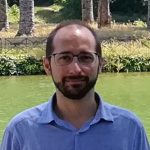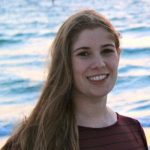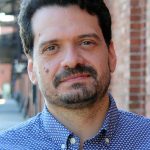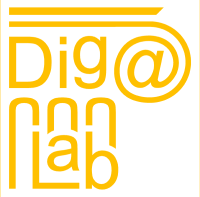At the Dig@Lab there is a core group of faculty and graduate students who work on projects and teach courses that introduce undergraduates to the research fields and methods practiced in the lab. The lab also contains affiliated faculty and staff who work on projects or support technical aspects of these projects.
Director

Maurizio Forte
William and Sue Gross Professor of Classical Studies Art, Art History, and Visual Studies
My scientific activity has been particularly focused from the beginning on a strong multidisciplinary approach to the development of virtual heritage and digital archaeology. During my degree, MA, PhD and Specialization in Archaeology I have always integrated traditional courses in Ancient Art History, Etruscology, Roman and Greek Archaeology, Landscape Archaeology, Papirology, Egyptology, Pre-Colombian Archaeology, and Ancient Topography with more experimental activities in computing labs and with the use of digital technologies. The research in which I have been most involved is concerned with the reconstruction of archaeological and ancient landscapes in a virtual format. This has meant working with digital technologies such as 3D documentation, geographic information systems (GIS), remote sensing, spatial technologies, open software WEB-VRGIS and virtual reality. Having created a virtual reconstruction, my efforts were then directed to the epistemology of this form of presentation, one aspect of eco-anthropological thinking. I have coordinated archaeological projects in Italy, Ethiopia, Egypt, Oman, India, China, Honduras, Mexico, Spain and Turkey, always integrating theoretical approaches and new methodologies of research. More Information
Core Member

Nevio Danelon
Postdoctoral Associate in the Department of Art, Art History & Visual Studies
Nevio Danelon, Ph.D., is a Postdoctoral Associate in the Department of Art, Art History & Visual Studies at Duke University where he researches and experiments with the use of digital technologies applied to cultural heritage visualization and archaeological investigation. Nevio began his scholarly inquiry in history during his MA in Ancient History at the University of Pisa, Italy and then he received his Ph.D. in Oriental Studies defending a doctoral dissertation in Egyptian archaeology. His Ph.D. project dealt with the topographic reconstruction of Memphis, the dynastic capital of Egypt, by collating classical sources and the clues emerging from satellite imagery. In addition, he gained experience on architectural and virtual environments modeling working as a render artist and 3D modeler in Italy. He has joined the Department of Art, Art History & Visual Studies at Duke University in 2013 as a visiting scholar thanks to a scholarship for the Regium@Lepidi project and the support of Lions Club Reggio Emilia. He is now a core member of the Dig@Lab, digital archaeology laboratory, where he takes part in different archaeological excavations and projects in Vulci (Italy), Rome, Catal Hoyuk (Turkey), and Knossos (Crete).
Affiliates

Katherine McCusker
Ph.D. Student – Art, Art History & Visual Studies Department
Katherine McCusker, graduating from Dickinson College in 2013 with a B.A. in Archaeology, started the Art History PhD program in the fall of 2015 under the advisory of Maurizio Forte. Katie’s fieldwork has focused on excavations in the Mediterranean, including Mycenae (Greece), Vulci (Italy), and Catalhoyuk (Turkey). Her dissertation research will address using 3D modeling and visualization to compare changes in architecture in Vulci, Italy and how this can be used to offer a more approachable manner in disseminating archaeological and scholarly work to the public.

David J. Zielinski
Technology Specialist
David J. Zielinski is currently a technology specialist for the Department of Art, Art History & Visual Studies (2018-present). Previously a member of the DiVE Virtual Reality Lab (2004-2018), under the direction of Regis Kopper (2013-2018), Ryan P. McMahan (2012), and Rachael Brady (2004-2012). He received his bachelors (2002) and masters (2004) degrees in Computer Science from the University of Illinois at Urbana-Champaign, where he worked on a suite of virtual reality musical instruments (video) under the guidance of William R. Sherman. He is an experienced VR/AR software developer, as well as having experience in the hardware configuration and systems integration issues of setting up and maintaining virtual reality systems. His virtual reality research interests include: novel interaction techniques, tracking systems, and domain specific applications of VR. He has additional interests in real time audio synthesis and physical computing via Arduino and BeagleBone/Bela. More Information

Augustus Wendell
Assistant Professor of the Practice, Art, Art History and Visual Studies
Augustus Wendell, MFA, is an Assistant Professor of the Practice in the department of Art, Art History and Visual Studies. He is a core faculty member of Computational Media, Arts and Cultures. Augustus received his MFA in Computer Arts at the School of Visual Arts in New York City.
Past Member

Nicola Lercari
Assistant Professor of World Heritage
Nicola Lercari, Ph.D., is an Assistant Professor of World Heritage in the School of Social Sciences, Humanities, and Arts at the University of California Merced where he investigates digital preservation of heritage, cross-media systems for museums, and the analytical and interpretative role of the visualization of the past. Nicola received his Ph.D. in History and Computing from the University of Bologna, Italy with a dissertation on the visualization of medieval urban spaces.
